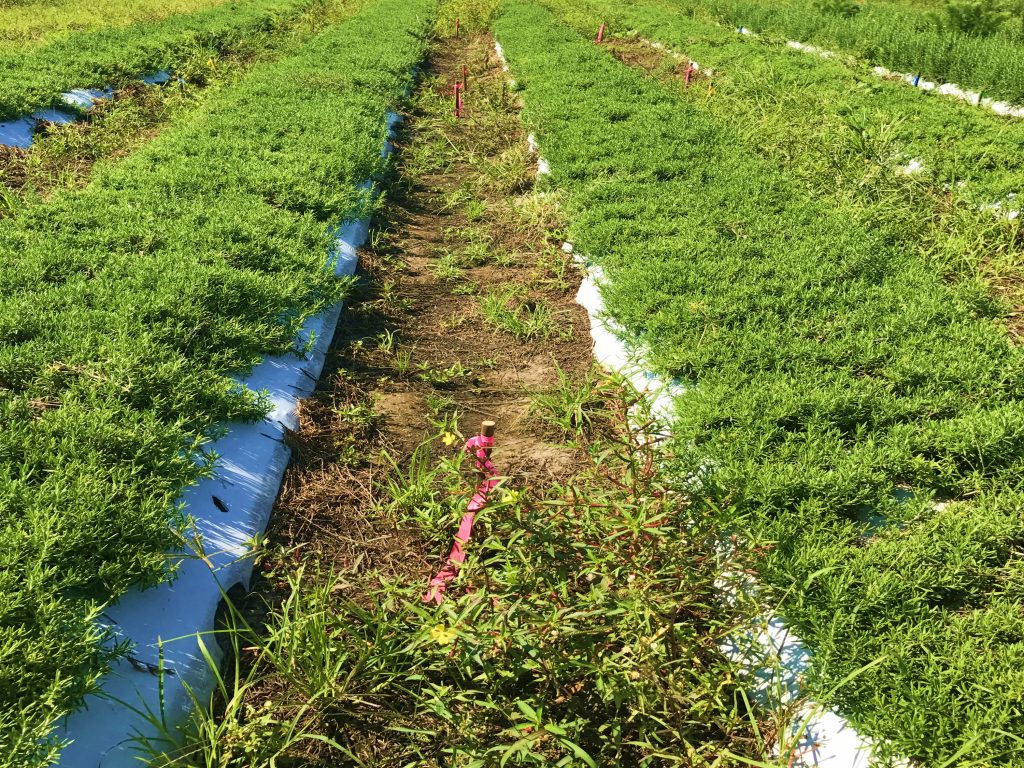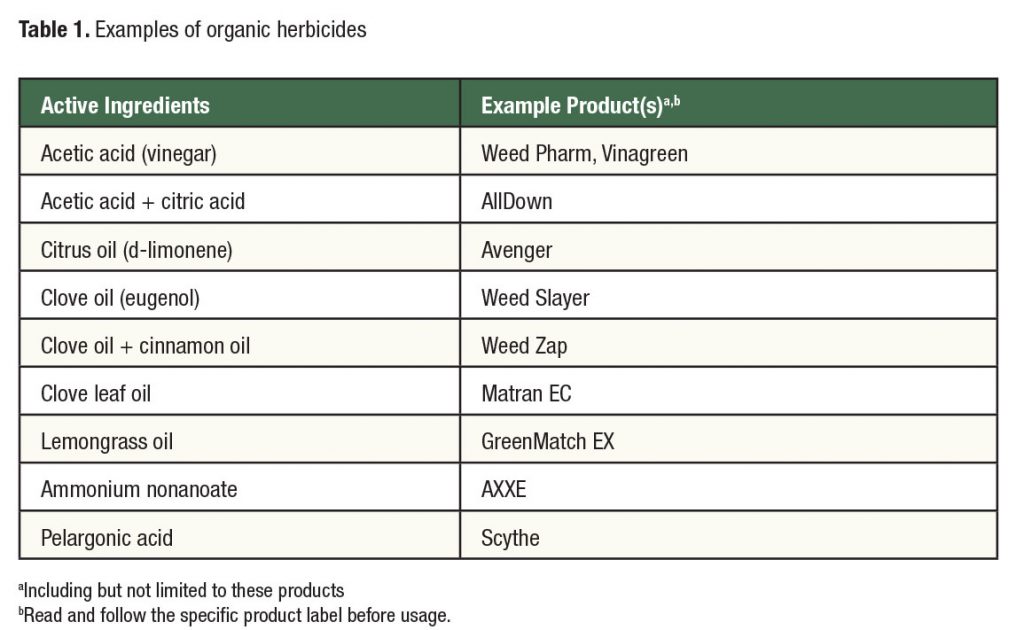
By Ruby Tiwari and Ramdas Kanissery
Organic growers in Florida fight weeds throughout the year, as it is one of their significant challenges in production (Figure 1). Organic producers typically use various mechanical and cultural methods like tillage, cultivation, hand-weeding, mulching, etc., to keep weeds in check on their farms. While there is a general conception that there is no chemical weed control used in organic farming, this isn’t entirely true. There are herbicide products available for potential use in sustainable and organic production systems.
Natural is the Key Word

The key word is “natural” for these types of herbicide products. The general rule is that naturally occurring materials are permitted, whereas synthetic (human-made) chemicals are not allowed in organic production. Natural product herbicides are based on “substances originated from plants, animals or minerals and did not undergo a synthetic process.” Hence, non-synthetic is also used as a synonym for natural materials.
Natural materials currently utilized in weed control in organic production include acetic acid (concentrated vinegar), essential oils and non-synthetic herbicidal soaps. Acetic acid and vinegar are the ingredients in several herbicide products. Other plant-based and natural herbicide active ingredients include essential oils like clove, citrus, cinnamon, lemongrass, etc., and herbicidal soaps like ammonium nonanoate and pelargonic acid. Table 1 provides some examples of organic herbicides based on such naturally derived active ingredients.
All organic herbicides are in the post-emergent herbicide group, which means they will “burn down” or suppress the already emerged weeds. Also, most of these herbicides are non-selective and typically kill any plant tissues they come in contact with, regardless of whether they are broad leaves or grasses. Moreover, these products do not possess any residual or pre-emergent activity to prevent weed germination in the soil.
It’s important to note that although several natural materials are approved for weed control in organic farming, there are restrictions associated with their use in specific crop situations and application areas. It is the user’s responsibility to determine the compliance of the particular herbicide product for the intended application setting.
A helpful database for searching herbicide products allowed for use and not allowed for use on organic farms can be found at the Organic Materials Review Institute (OMRI) website (omri.org). OMRI listings do not indicate approval by any federal or state government agency. Therefore, growers should always consult with their organic certifier before using such products.
Making the Most of Products
Organic herbicides work by desiccating (i.e., drying out) plant leaves, resulting in the death of weeds through water loss. They perform relatively well on annual broadleaf weeds and grasses, especially in their early establishment stage.
Follow-up applications are often beneficial to control new flushes of weeds, especially from perennial weeds. The efficacy of organic herbicide products can be improved by achieving good spray coverage during the application, perhaps even to the point of runoff from the weed foliage.
Other considerations include using an approved surfactant/adjuvant to increase herbicide retention and coverage. No synthetic adjuvant products available are allowed for use in organic production. However, several non-synthetic and natural adjuvant products are available, including pine resin derivatives (e.g., Nu Film P), yucca (e.g., Natural Wet) or other plant-based materials.
Herbicides based on natural products can be a great tool to fight weeds in organic farming when combined with other weed-control methods. However, before using these products, it is essential to check their label to ensure that their active and inert ingredients are naturally based and are allowed to be used in the planned area of application.
Ruby Tiwari is a Ph.D. graduate student and Ramdas Kanissery is an assistant professor, both at the University of Florida Institute of Food and Agricultural Sciences Southwest Florida Research and Education Center in Immokalee.









